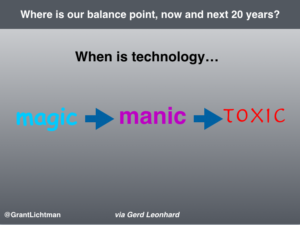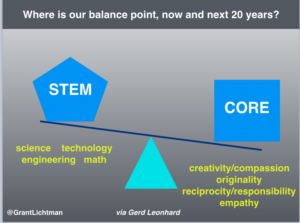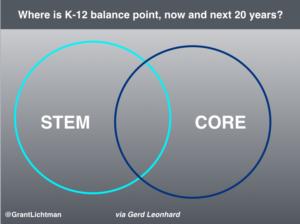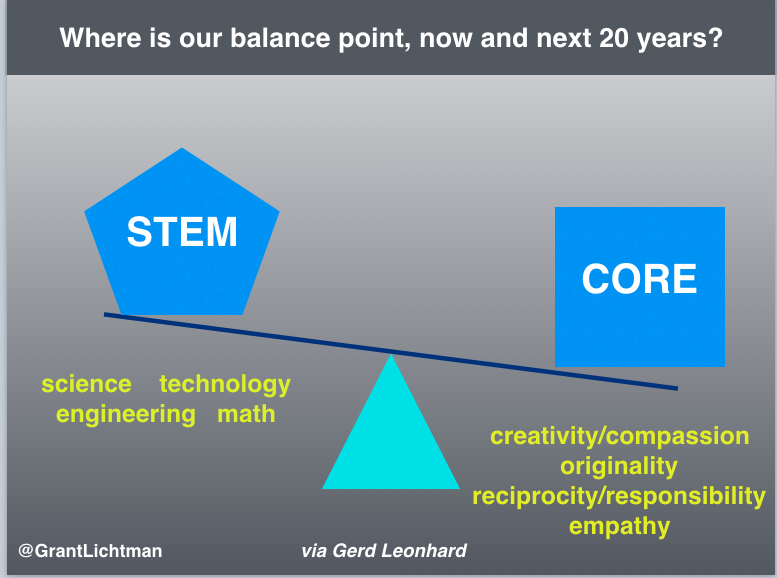 In his new book, Technology vs Humanity, futurist Gerd Leonhard explores the really big changes that are driving fundamental shifts in how we all lead our lives, and may, within our own lifetimes, challenge the very paradigm of what it means to be human. These shifts will have tremendous impact on the role and relevance of K-12 education, whether we like it or not. And, the changes are coming faster than any of us can imagine.
In his new book, Technology vs Humanity, futurist Gerd Leonhard explores the really big changes that are driving fundamental shifts in how we all lead our lives, and may, within our own lifetimes, challenge the very paradigm of what it means to be human. These shifts will have tremendous impact on the role and relevance of K-12 education, whether we like it or not. And, the changes are coming faster than any of us can imagine.
I have made three new slides for my deck based on Leonhard. The first concept is that many of these rapid, life-changing technologies go through three phases: magic, manic, and toxic. iPhones were magic when they came out; still pretty much are. As social media quickly infiltrated our lives, we have become manically tethered to social media streams. And we already are seeing that such tethering is mentally, physically, and emotionally toxic with real and profound negative consequences to lifestyle, health, and brain development.

Second, we all know that jobs today and in the future are heavily weighted towards STEM fields, so education has responded. But Leonhard points out that the future for all STEM jobs are not equal. Those that are repetitive and take less creativity will increasingly be replaced by robots and AI-empowered computers. He correctly demands that we focus on uniquely human capacities: his CORE elements that will be much more difficult, if not impossible to replicate by a machine. These CORE elements are similar to those that I have suggested will also allow us to regain our lost commitment to civil discourse and real democracy.

Third, I suggest that it is the role of forward-leaning educators to figure out not just the balance of STEM and CORE, but the overlap. The sweet spot of a powerful education value proposition going forward will be this intersection of preparation for jobs in the future, and the powerful capacity of humans to outperform machines, at least for the foreseeable future.

Yes, our kids need to learn to code, but the next two decades will be defined by changes in technology that no one can keep up with, which makes those eternal CORE skills and traits, many of which are deeply embedded in humanities education, the best legacy we can give our students.












Remember too that STEM courses and experiences are often led by people who themselves are creative, compassionate, responsible and empathic, modeling those behaviors for students. My bigger concern is isolation from T/S relationships which are still the # 1 factor in the education equation, the one variable that accounts for the biggest impact.
Could not agree more, and it is an advantage if we just double down on relation-rich learning. Unfortunately, most indy schools still think that the only way to do that is with smaller class sizes, which are financially unsustainable; they are and will be disrupted out of business by pedagogy that is relation-rich AND can be used in larger class sizes.